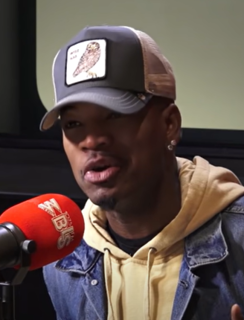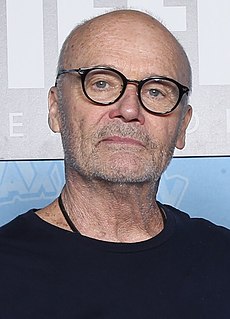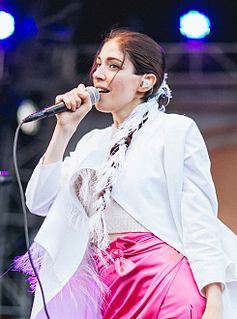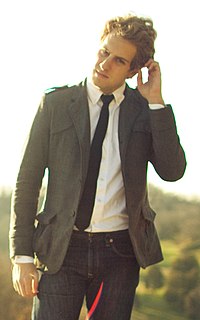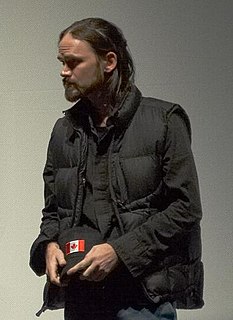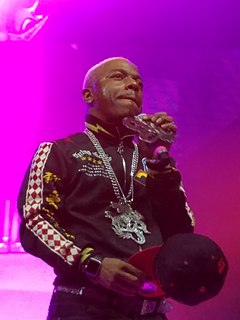A Quote by Martine Syms
Pipilotti Rist is a Swiss video artist I learned about pretty early on. She's one of the first contemporary artists I knew about and was really drawn to.
Related Quotes
...fact was she knew more about them than she knew about herself, having never had the map to discover what she was like. Could she sing? (Was it nice to hear when she did?) Was she pretty? Was she a good friend? Could she have been a loving mother? A faithful wife? Have I got a sister and does she favor me? If my mother knew me would she like me? (140)
I was working in this very bombastic style. I didn't really know about style. I didn't think about it: I did what I was interested in, what I was attracted to, what I was drawn to. I was drawn to color, and I was drawn to humor, and I was drawn to sexuality and spontaneity. It was all really intuitive. I never really thought, "Well this is the style...
I think it was pretty obvious early on that we had both come with kind of the same attitude of "Let's just [jump] in," and neither of us was going to be precious about it. I feel like the thing that we learned is, weirdly, the most intimate thing or a very intimate thing you can do to somebody is hold their tongue with your fingers. When Paul [Dano] is making me talk [in Swiss Army Man].
Wanderer: You don't really feel that way about me you know. It's this body... she's pretty isn't she? Ian: She is. Melanie is a very pretty girl. Even beautiful. But pretty as she is, she is a stranger to me. She's not the one I... care about. Wanderer: It's this body. Ian: That's not true at all. It's not the face, but the expressions on it. It's not the voice, but what they say. It's not how you look like in that body, it's what you do with it. You are beautiful.
Back in the day, even if they were singing about the same things, each artist was unique. That's why I try to stay away from the big-name producers, so I can prove that it's not about the producer, it's about the artist. A lot of R&B artists have gotten away from being artists and are just chasing after the next hot producer and it all starts to sound the same.



